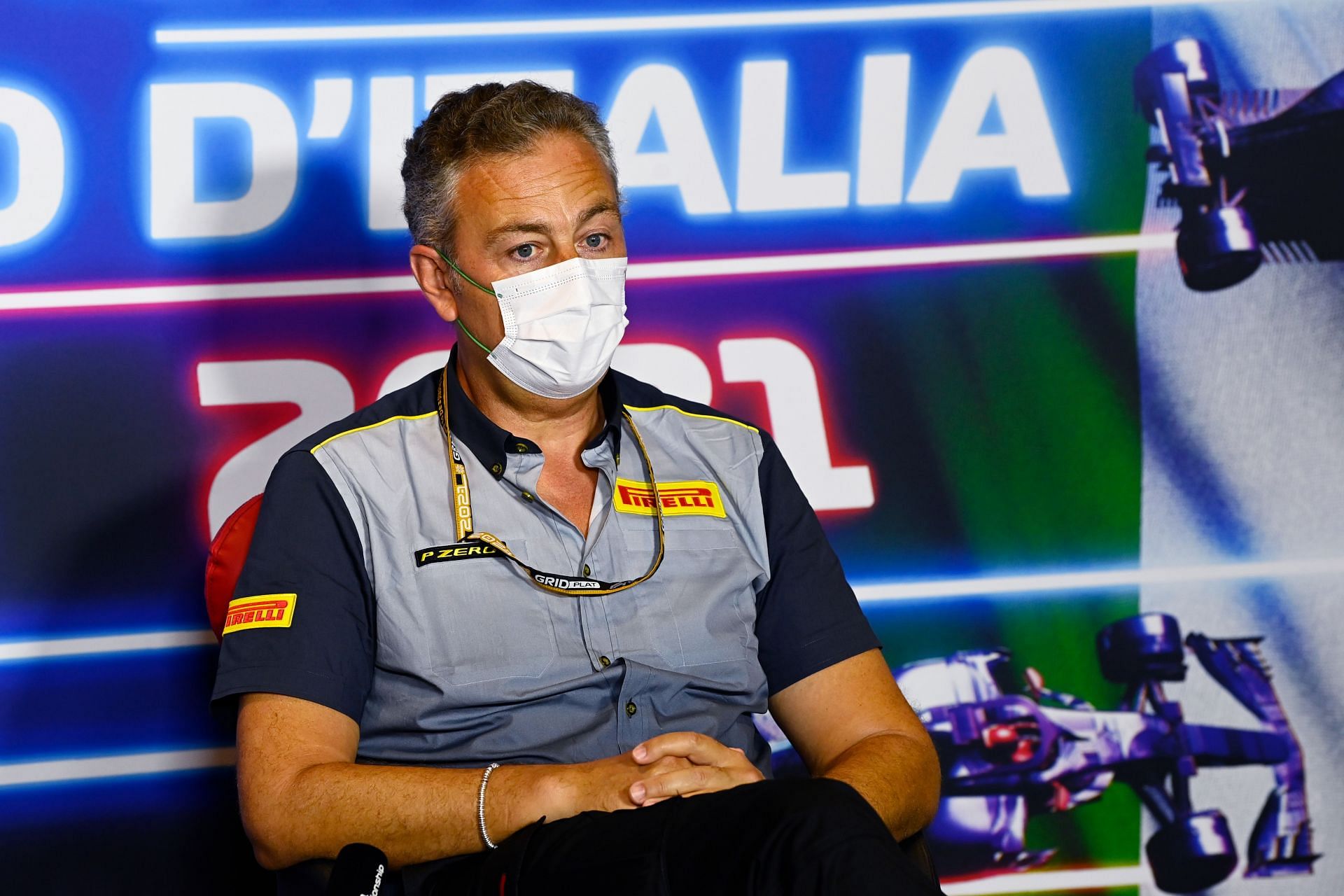The 2022 F1 Bahrain Grand Prix brings with it many unknown variables on account of the many regulatory changes in the sport. As a result, it is 'hard to predict' any tire strategies that teams might use in the first race of the year, according to Pirelli F1 boss Mario Isola.
Earlier, the Italian tire manufacturer had confirmed it intends to bring the three hardest compounds to Sakhir for the first Grand Prix of the year on March 20. All F1 teams will get a combination of C1, C2, and C3 tire compounds for it.
In his pre-race briefing on tire allocations for the race, Isola wrote:
“We’ve opted for the hardest tyres in the range for this first grand prix given the track layout, asphalt characteristics and temperatures: also because the compounds are different compared to previous years. The teams had the chance to get familiar with the 2022 18-inch tyre range, having spent a total of six days of testing with all the compounds, although not always in representative conditions. We know from the past that track temperatures can play an important role in Bahrain, affecting tyre degradation, and that’s something we noticed at the recent test as well.”
The Italian went on to add, stating:
“During the race temperatures should be milder compared to FP1 and FP3, so the teams will have to focus on their data from FP2 and qualifying. It’s still hard to predict the race strategy as, in the past, Bahrain has been a multi-stop race, but it will be interesting to see if anyone will try something different this year.”
Pirelli boss feels 2022 F1 season could see rise of one-stop strategies
Mario Isola believes most races in the forthcoming 2022 F1 season could see teams opt for a one-stop strategy.
With cars now running on new 18-inch wheels, Pirelli has developed new tire compounds which they claim are slower to degrade during race conditions.
During an interview with Tire Technology International, Isola explained his thought process by saying:
“We are expecting a performance that is in line with the current tires, but the car is different, the downforce is different and maybe we will have a small difference in performance. I’m expecting most of the races will be one-stop, simply because if you have less degradation there is no reason to have more than one stop. If we have really close racing and we have action on track, who cares about the pit stops?”
Pirelli has been working in conjunction with all the F1 teams on the grid to develop the new tires. They have also focused on reducing tire vibrations in high-speed situations to increase overall stability.

